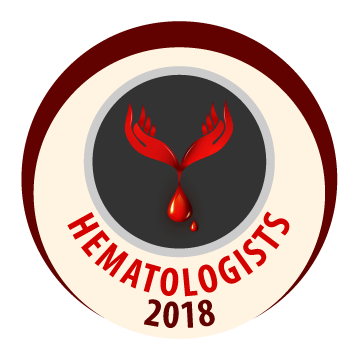
John Ekow Aidoo
Korle-Bu Teaching Hospital, Ghana
Title: Laboratory diagnosis of hematological conditions in Ghana
Biography
Biography: John Ekow Aidoo
Abstract
Haematological tests are very essential for the day to day management of all patients with haematological disorders. Ghana is a middle-income country which is under resourced when it comes to facilities and techniques in medical laboratory diagnosis. As a developing country, the laboratory scientists try their best to make use of the little resources available to help improve the health status of Ghanaians. The objective is to highlight on the various haematological tests, methods and techniques that are being performed in Ghana compared with that of the developed countries. This will throw more light on the gap between the two groups and to determine how this gap can be bridged. As laboratory diagnosis for haematological conditions has gotten to molecular levels in the advanced countries which make it faster, accurate and accreditable, Ghana is still diagnosing haematological conditions including malignancies at cellular level; hence patients care may be compromised. It is rather unfortunate when patients die because one or more other tests could not be performed to diagnose or to determine the stage of their conditions because laboratories lack the major equipments and techniques. While there is a possibility of transporting patient’s sample to such advanced countries, it comes with huge cost to the poor patients. In 2009, Parkins et al., undertook a research using the two biggest and leading Hospitals in Ghana, Korle- Bu Teaching Hospital and Komfo Anokye Teaching Hospital to evaluate the feasibility of a UK based real time, lymphoproliferative disorder diagnostic service which included morphology, flowcytometry, immunohistochemistry, immunophenotyping, cytogenetics and molecular genetics to improve the management of patients in Ghana. Patients enrolled in this study had their required samples sent to Haematology Malignancy Diagnostic Service (HMDS), Leeds, United Kingdom (UK). Initial diagnosis was done on samples locally before couriered to UK. Results comparison and analysis showed that HMDS would have changed management of 31% of the patients. While this is quiet significant, another issue would be how many can afford these services if samples would have to be couriered across to more advanced countries. Though Ghana has chalked some successes in diagnosing most of the haemoglobinopathies, a lot still needs to be done since most of the facilities perform the horizontal alkaline electrophoresis using cellulose acetate paper on routine basis. This method makes it difficult to detect certain haemoglobin types accurately and their quantitation impossible. There is also the difficulty of detecting the thalassemias. Due to lack of modern diagnostic methods in less resourced medical laboratories in Ghana, most definitive diagnosis cannot be achieved, hence, the need for proper restructuring of our laboratories and human resource development.

